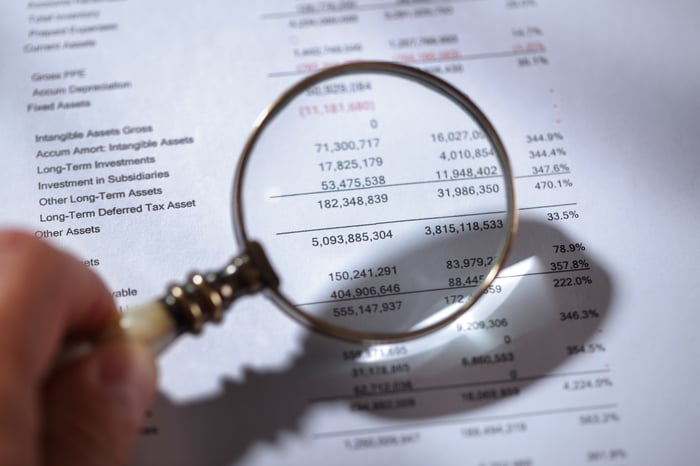
Could a deal be in the works? Image source: Getty Images.
What happened
Shares of embattled drugmaker Valeant Pharmaceuticals (BHC 1.57%) skyrocketed as much as 36% in late-day trading on Tuesday, after reports surfaced that the company is in discussion with Japan's Takeda Pharmaceutical (NASDAQOTH: TKPYY) to possibly sell Valeant's Salix Pharmaceuticals drug franchise for $10 billion. Shares finished the day higher by 33.7%.
So what
As reported by The Wall Street Journal, according to people familiar with the matter, the purchase price would include about $8.5 billion in upfront cash that Valeant could use to repay its lenders, as well as future royalty payments to Valeant that would likely be sales-based. If a deal is reached, an announcement could come within the next few weeks, though the report also suggests that a deal is no guarantee at this point. CEO Joseph Papa has suggested that he and his management team would be willing to sell Valeant's core assets, which include Salix, if the price is right.
The report also notes there is another unnamed bidder in the mix that's vying for Salix.
A move to purchase Salix wouldn't be surprising for Takeda, since it originally tried to purchase Salix Pharmaceuticals and its array of stomach drugs, which includes irritable-bowel-syndrome drug Xifaxan. Ultimately, Valeant won the battle for Salix and acquired the company for just shy of $11 billion a year and a half ago.
Now what

Image source: Getty Images.
If Valeant were able to sell Salix Pharmaceuticals and net the reported $8.5 billion in upfront cash, it would be able to put a major dent in its remaining debt, which stood at $30.77 billion as of the end of the second quarter. The original game plan was to sell non-core assets that generate about 20% of its annual revenue for 11 times EBITDA (earnings before interest, taxes, depreciation, and amortization), or $8 billion. Assuming Valeant continues selling its non-core assets, it's possible it could end 2017 with less than $20 billion in net debt.
The big question, if the Salix divestment were to go through, is what would happen to Valeant's longer-term growth prospects. Salix's Xifaxan and brand-name stomach drugs were expected to be big margin drivers for Valeant. Without these potentially high-growth products, Valeant's future growth prospects would presumably take a hit, and the company would become ever more reliant on its core dermatology products.
The important thing for investors to remember here is that these are merely rumors at this point. It's understood that Valeant needs to divest assets to improve its financial flexibility, so perhaps we'll learn more a week from now when Valeant reports its third-quarter results.





